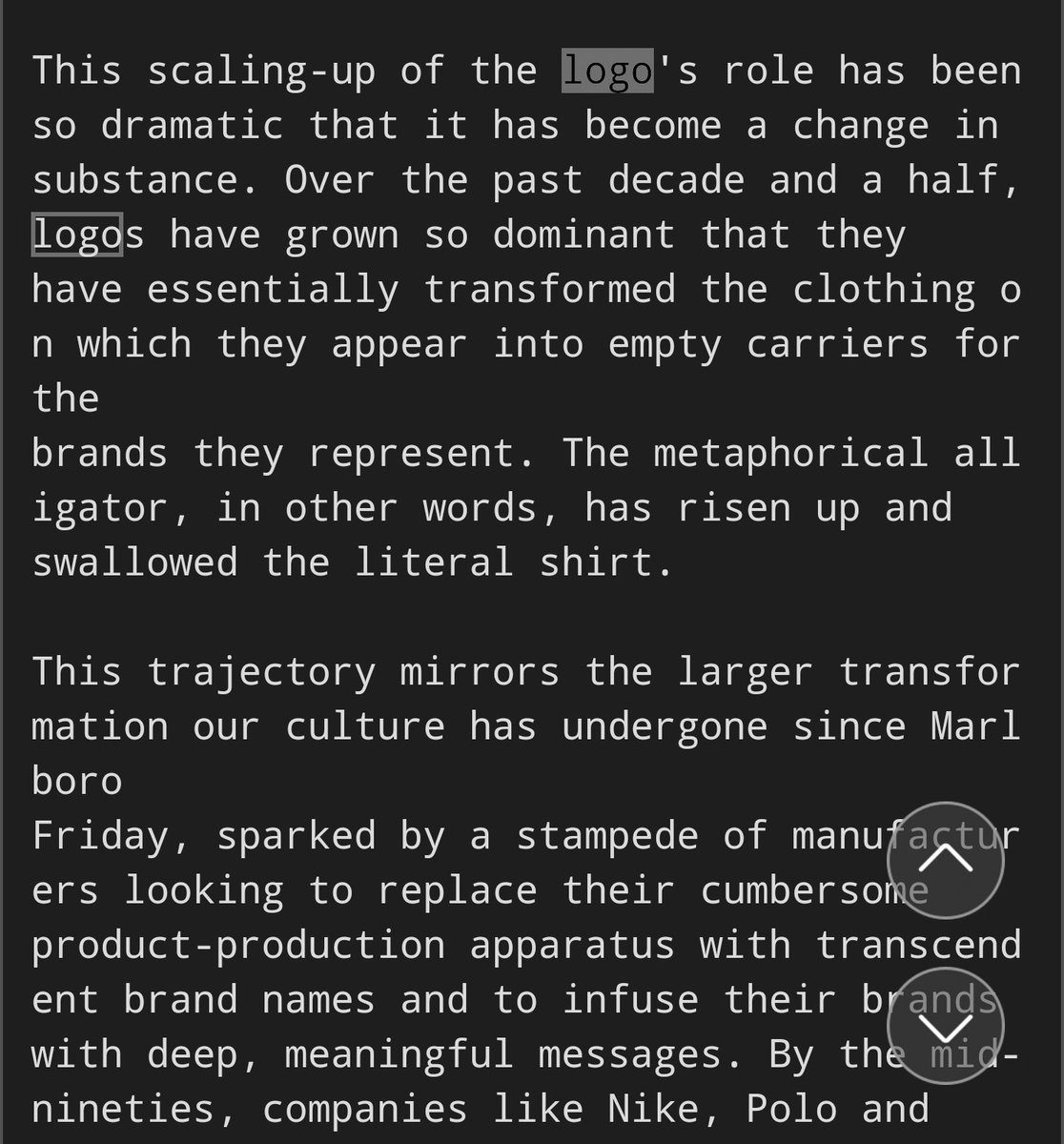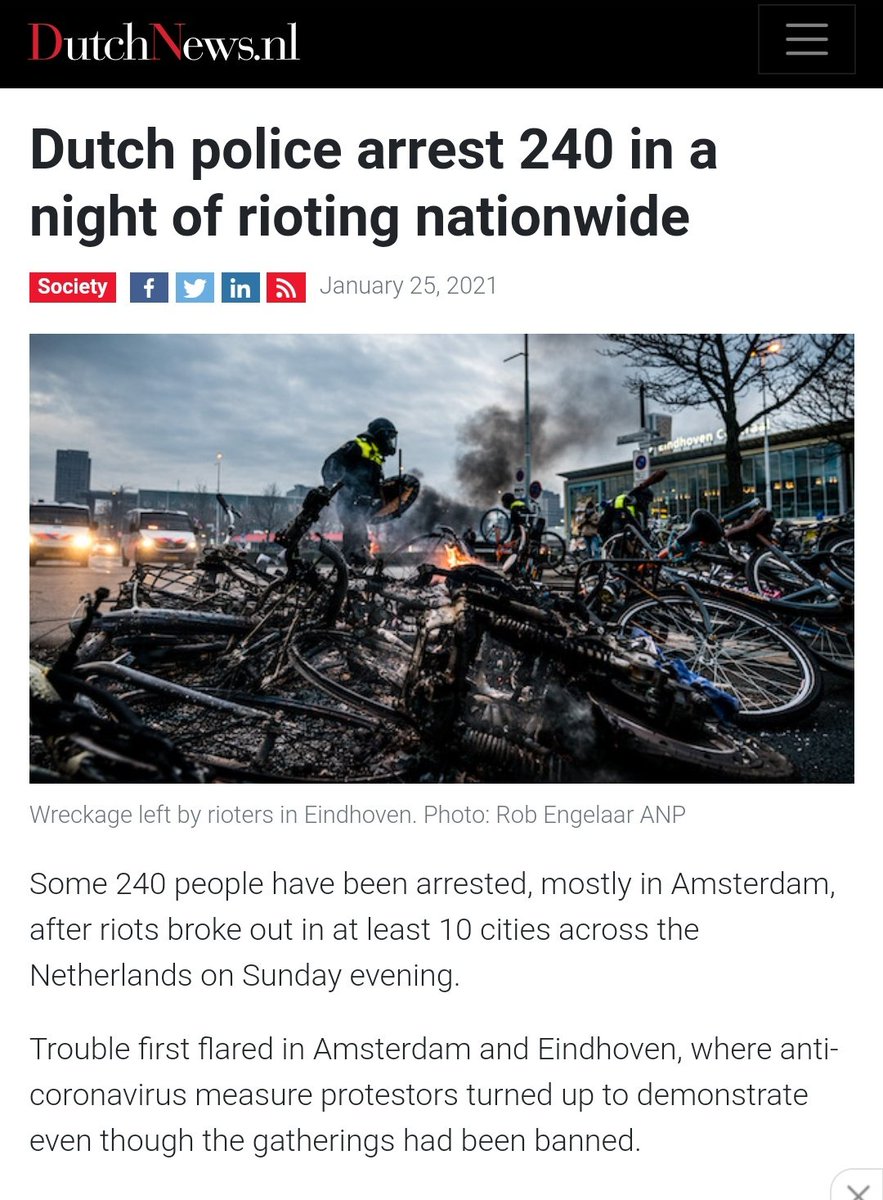A super dieend quick de-reading of Naomi Klein's (?) book entitled Lo Nogo in n episodes.*
So the general mode in "consumer"-capitalism is what we literally see is wares and their prize only. Images (situationists) or brands (Klein) took over. What one
A super dieend quick de-reading of Naomi Klein's (?) book entitled Lo Nogo in n episodes. First things first. "It was twenty years ago tonight". We, me and us never read it. Why? Because there is a premise in there as we and I know it - knew it beforehand. No incorporation pic.twitter.com/d8FMFenFrp
— WORKSHOP (@zineworkshop) January 6, 2021

More from Legal
1/
In light of this serious cyber attack and this being the second in a row that I've heard in the past few weeks, I'd like to take this moment to talk about the cyber attack known as #phishing so that others do not fall prey to it and stay safe online.
Thread starts:

2/
Phishing is usually a means of contacting you by impersonation to gather data, oversimplifying it. This can happen in several ways:
1. URL similarities: Usually when people visit a webpage, most people never check the URL (Uniform Resource Locator). For example, a fake URL of

3/
https://t.co/x0brAMyKgF would be https://t.co/HrdE9hklv1. Seem the same, right? No. I've replaced one single character of "L" in @Google with "I". Therefore, your entire data would be redirected to the server that is hosting GOOGIE, instead of GOOGLE. This is commonly
4/
hackers perform cyber attacks. However this is only one of many.
Many people might forward you genuine links with small "add-ons" which enter your system like a Trojan Horse. A beautiful meme of keyboard cat on the outside but a vicious data-mining link on the inside.
Plus

5/
There's also other means of doing this. And you might think "But dude, who's stupid enough to fall for it?"
LOTS of UNINFORMED people are.
2020 was a record breaking year for phishing websites and attacks as per @techradar. It's not just through
In light of this serious cyber attack and this being the second in a row that I've heard in the past few weeks, I'd like to take this moment to talk about the cyber attack known as #phishing so that others do not fall prey to it and stay safe online.
Thread starts:

2/
Phishing is usually a means of contacting you by impersonation to gather data, oversimplifying it. This can happen in several ways:
1. URL similarities: Usually when people visit a webpage, most people never check the URL (Uniform Resource Locator). For example, a fake URL of

3/
https://t.co/x0brAMyKgF would be https://t.co/HrdE9hklv1. Seem the same, right? No. I've replaced one single character of "L" in @Google with "I". Therefore, your entire data would be redirected to the server that is hosting GOOGIE, instead of GOOGLE. This is commonly
4/
hackers perform cyber attacks. However this is only one of many.
Many people might forward you genuine links with small "add-ons" which enter your system like a Trojan Horse. A beautiful meme of keyboard cat on the outside but a vicious data-mining link on the inside.
Plus

5/
There's also other means of doing this. And you might think "But dude, who's stupid enough to fall for it?"
LOTS of UNINFORMED people are.
2020 was a record breaking year for phishing websites and attacks as per @techradar. It's not just through
You May Also Like
Krugman is, of course, right about this. BUT, note that universities can do a lot to revitalize declining and rural regions.
See this thing that @lymanstoneky wrote:
And see this thing that I wrote:
And see this book that @JamesFallows wrote:
And see this other thing that I wrote:
One thing I've been noticing about responses to today's column is that many people still don't get how strong the forces behind regional divergence are, and how hard to reverse 1/ https://t.co/Ft2aH1NcQt
— Paul Krugman (@paulkrugman) November 20, 2018
See this thing that @lymanstoneky wrote:
And see this thing that I wrote:
And see this book that @JamesFallows wrote:
And see this other thing that I wrote:
























